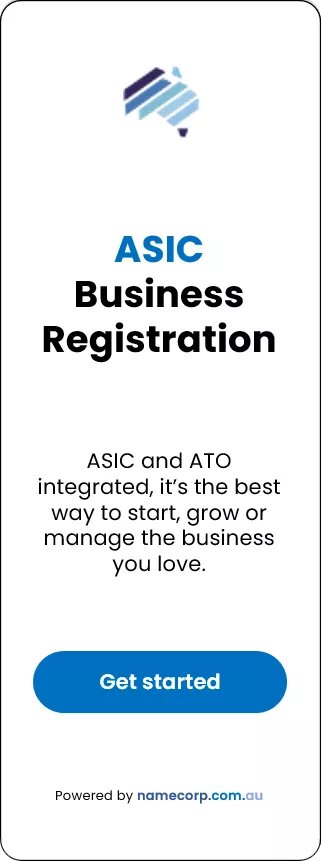Small businesses are the backbone of the Australian economy, contributing to more than half of the country's GDP and employing over 40% of the workforce. However, they also face many challenges, such as access to finance, skills shortages, regulatory burdens and competition from larger firms. To support the growth and innovation of small businesses, the Commonwealth government offers a range of grants and programs that aim to provide funding, advice, mentoring and networking opportunities.
But are these grants working for small business? How effective are they in achieving their objectives and delivering value for money? And how can they be improved to better meet the needs and expectations of small business owners?
In this blog post, we will review some of the key Commonwealth business grants available for small businesses, their eligibility criteria, benefits and drawbacks, and some tips on how to apply for them. We will also share some insights from our own experience as a small business that has successfully applied for and received several grants from the Commonwealth government.
Commonwealth business grants for small businesses
There are many Commonwealth business grants for small businesses across different sectors, industries and regions. Some of the most popular ones include:
- The Entrepreneurs' Programme: This is the flagship program of the Commonwealth government for supporting small and medium enterprises (SMEs) to become more competitive, productive and innovative. It offers four streams of assistance: Accelerating Commercialisation, Business Management, Incubator Support and Innovation Connections. The program provides access to expert advice, co-funded grants, networks and partnerships, and tailored support.
- The Research and Development (R&D) Tax Incentive: This is a tax-based program that encourages businesses to invest in R&D activities that are new, experimental and uncertain. It provides a tax offset of either 43.5% or 38.5% of eligible R&D expenditure, depending on the turnover and profitability of the business. The program is available for all sectors and industries, and there is no cap on the amount of R&D expenditure that can be claimed.
- The Export Market Development Grants (EMDG) Scheme: This is a reimbursement-based program that supports Australian businesses to develop and expand their export markets. It provides up to 50% of eligible export promotion expenses above $5,000, up to a maximum of $150,000 per financial year. The program is open to businesses with an annual turnover of less than $50 million, and covers a range of export activities, such as marketing, advertising, trade shows, e-commerce and overseas representation.
- The Regional Jobs and Investment Packages (RJIP): This is a competitive grant program that supports regional development and job creation in 10 regions across Australia. It offers three streams of funding: Local Infrastructure, Business Innovation and Skills and Training. The program provides grants ranging from $50,000 to $10 million, depending on the stream and project size. The program is open to businesses, local governments, not-for-profits and community organisations that operate in one of the eligible regions.
Benefits and drawbacks of Commonwealth business grants
Applying for and receiving a Commonwealth business grant can have many benefits for small businesses, such as:
Access to funding: A grant can provide a valuable source of funding that can help a small business to start, grow or innovate its operations. A grant can also leverage other sources of funding, such as loans or equity, by reducing the risk or increasing the attractiveness of the project.
Access to expertise: A grant can provide access to expert advice or mentoring that can help a small business to improve its capabilities, performance or outcomes. A grant can also connect a small business with networks or partnerships that can offer new opportunities or insights.
Access to recognition: A grant can provide recognition or validation for a small business's achievements or potential. A grant can also enhance a small business's reputation or credibility among its customers, suppliers, investors or peers.
However, applying for and receiving a Commonwealth business grant can also have some drawbacks for small businesses, such as:
Time and effort: Applying for a grant can be time-consuming and resource-intensive. A small business may need to spend hours or days preparing a detailed application that meets the eligibility criteria and addresses the assessment criteria. A small business may also need to provide supporting documents or evidence that demonstrate its claims or achievements.
Uncertainty and risk: Applying for a grant can be uncertain and risky. A small business may not know if it will be successful or not until months after submitting its application. A small business may also face competition from other applicants who may have similar or better projects or proposals.
Compliance and reporting: Receiving a grant can involve compliance and reporting obligations. A small business may need to sign a contract or agreement that specifies the terms and conditions of the grant. A small business may also need to report on its progress or outcomes against the agreed milestones or indicators.
Tips on applying for Commonwealth business grants
Based on our own experience as a small business that has applied for and received several Commonwealth business grants, we have some tips to share with other small businesses who are interested in applying for them:
Do your research: Before applying for a grant, do your research on the grant program, its objectives, eligibility criteria, assessment criteria, application process and deadlines. Make sure you understand what the grant is for, who can apply, what you need to provide and when you need to submit your application.
Be strategic: Choose the grant that best suits your business goals, needs and capabilities. Don't apply for every grant that you come across, but focus on the ones that align with your business strategy, vision and values. Don't apply for a grant that you are not eligible for, or that you cannot deliver on.
Be prepared: Prepare your application well in advance of the deadline. Gather all the information and documents that you need to support your application. Write a clear and concise application that addresses the assessment criteria and showcases your business's strengths, achievements and potential. Proofread and edit your application before submitting it.
Be realistic: Be realistic about your chances of success and the benefits and drawbacks of receiving a grant. Don't rely on a grant as your only source of funding or support. Don't expect a grant to solve all your problems or challenges. Don't overpromise or underdeliver on your grant project or proposal.
Commonwealth business grants can be a great opportunity for small businesses to access funding, expertise and recognition that can help them to start, grow or innovate their operations. However, they also come with challenges, such as time and effort, uncertainty and risk, and compliance and reporting. Therefore, small businesses should do their research, be strategic, be prepared and be realistic when applying for them.
We hope this story has given you some useful information and insights on Commonwealth business grants for small businesses. If you have any questions or comments, please feel free to contact us



